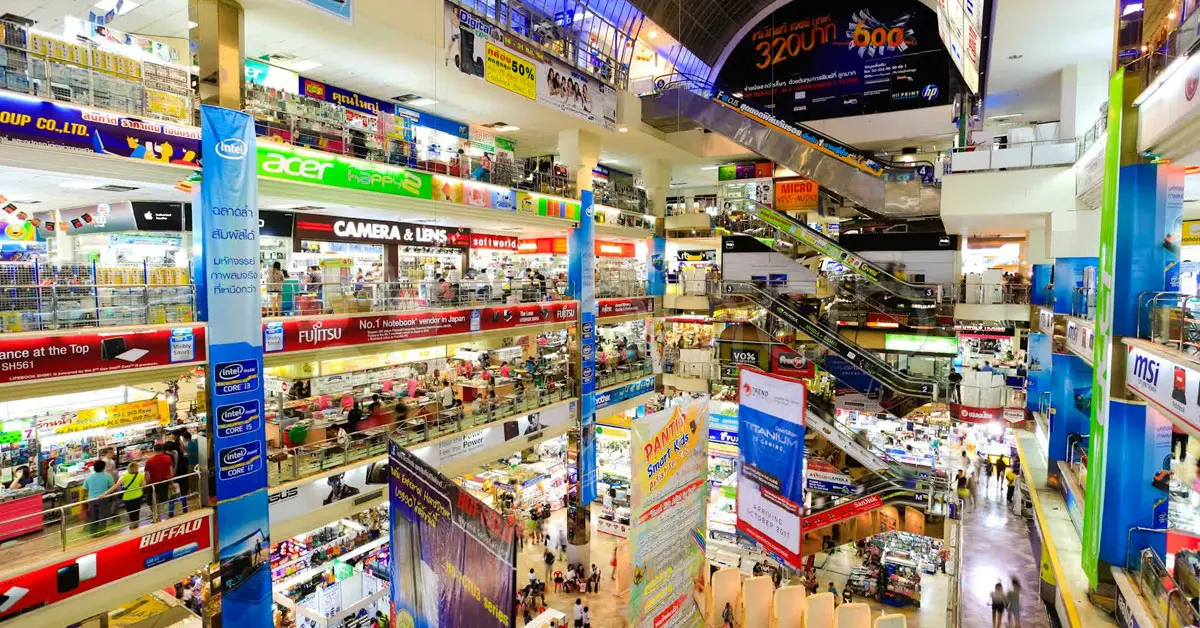You should consider sourcing from Thailand if your interests lie in the spheres of computer accessories, textiles, jewelry, electric tools and automobile parts
Thailand sets a classic example of rapid economic growth in less than a generation. A low-income country in the 1980s, Thailand was upgraded in status to an “upper-middle income economy” by the World Bank in 2011.
Manufacturing and industry have played a significant role in Thailand’s economic growth. Since most manufactured products are export items they bring tremendous amount of income to the country each year.
Major Industries include:
- Computers and accessories
- Textiles and garments
- Electric tools
- Jewelry
- Furniture
- Plastic products
- Automotive parts
Computers and accessories
Thailand exports lots of electronics. It is the second-largest exporter of computer hard drives and a major producer of other components used in personal computers. Like China, Thailand does a lot of assembly work and subcontracting to make components. Most of Thailand’s electronics factories are located in the Bangkok area. A software park was set up in Phuket.
Textiles and garments
Thailand also has a major export-oriented textile industry. The country exports about $6 billion of ready-to-wear clothing. It is a manufacturing center for famous international fashion houses such as Esprit, Guy Laroche and Polo Ralph Lauren. Thailand is also developing its own domestic brand names to be sold on international market.
Jewelry
Thailand is one of the world’s largest suppliers of high-quality gem and jewelry. Its reputation as gem and jewelry manufacturer might not be comparable to China and India in global statistics. However, in terms of gem and jewelry manufacturing with outstanding designs and exquisite craftsmanship and reasonable labor costs, Thailand has always been internationally recognized as being at the forefront.
Advantages of sourcing from Thailand
One advantage of sourcing from Thailand is the relatively weak bargaining power of the labor force. According to a December 2014 report from the International Labor Organization, less than 2 percent of Thai workers are unionized. The use of contactors and foreign migrant labor in factories has also contributed to weaker bargaining power of the workforce.
Thailand’s government is planning a major infrastructure upgrade over a 7-year period. The plan will include new rail lines that will replace trucking and link up Thailand with China. Railway expansion and upgrades will potentially benefit manufacturers logistically.
Disadvantages of sourcing from Thailand
A possible threat to manufacturing in Thailand is the country’s political instability. Over the last decade, there have been two military-led coups following frequent protests. Rapid shifts in political power and social order could be cause for concern when sourcing from Thailand.
Thailand’s geography poses a second threat. Heavy rains during the country’s monsoon season have led to significant flooding. Major flooding in 2011 led to at least $45 billion in economic damages.
Lastly, the country’s relatively high minimum wage makes sourcing from Thailand a less attractive option for some. Minimum wage is set at roughly $274 per month compared to Vietnam’s approximate average of $191 per month. Also decline in surplus labor is expected to push wages in Thailand even higher.
More topics on Alternatives to China
Opportunities for Amazon sellers in Vietnam
Alternatives to China Opportunities for Amazon sellers in Vietnam Vietnam provides immense opportunities for Amazon sellers and it should be considered as an alternative country for sourcing their private label products. More and more companies are setting up...
India – the next low-cost manufacturing hub
Alternatives to China India - the next low-cost manufacturing hub There is every reason to believe that the economies of India, Malaysia, Thailand, Indonesia, and Vietnam will inherit China’s crown for low-cost product manufacturing. Low-cost manufacturing...


